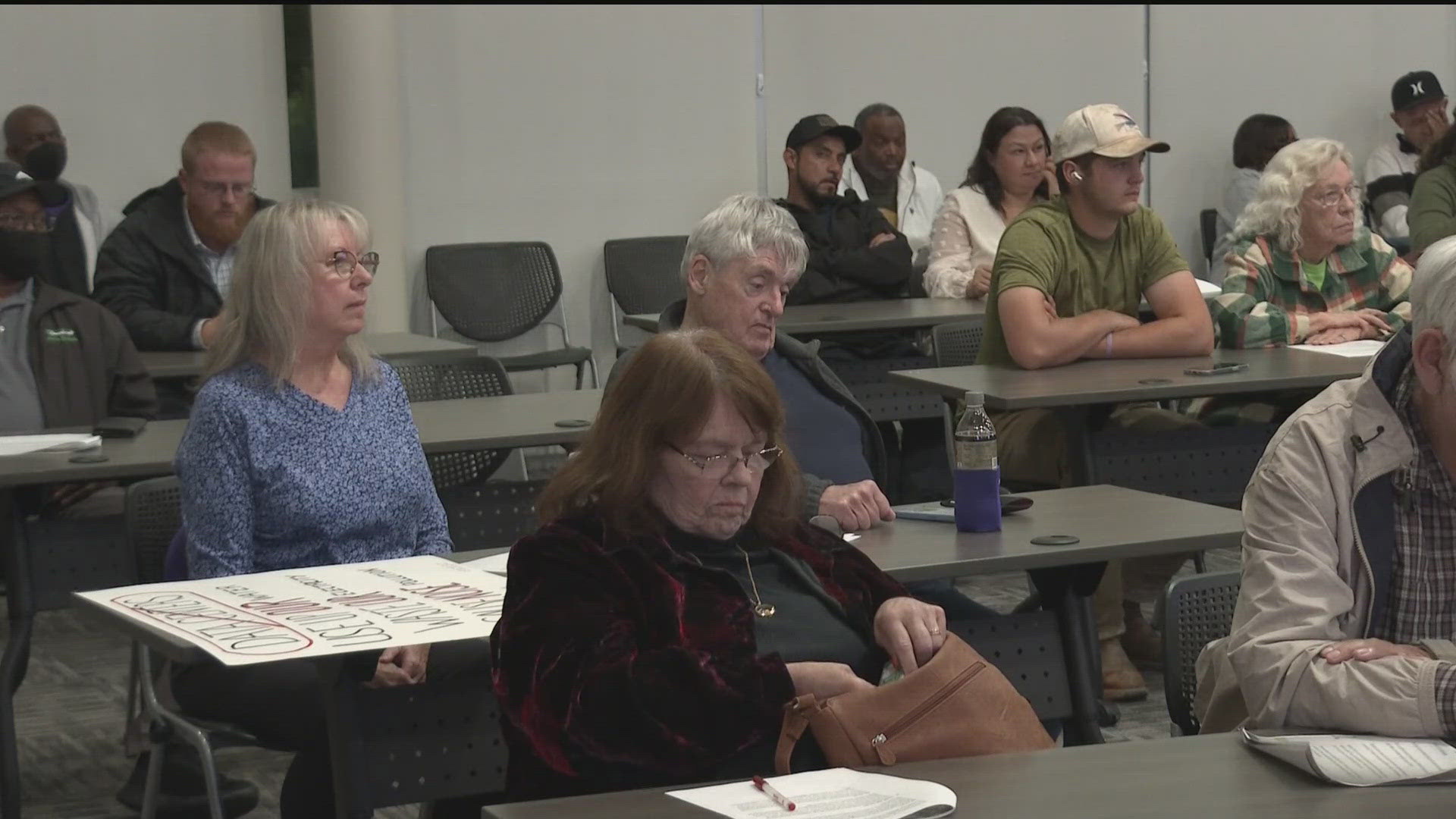ATLANTA -- For two years, the disappearance and murders of more than two dozen children terrorized the City of Atlanta. In 1982, Wayne Williams was convicted of killing two adult men and sentenced to life in prison. But prosecutors believe he was responsible for the murders of 23 of 29 children. His guilt has been debated ever since.
Williams has always said he is innocent and is hoping new information will support his claim and give him a new lease on life. Others say the new information means little to his case.
A study released recently the United States Department of Justice (DOJ), the FBI, the Innocence Project and the National Association of Criminal Defense Lawyers found that in 96 percent of cases where FBI hair analysis led to a conviction before 1999, the evidence was faulty. 11Alive News has learned one of those cases was Wayne Williams' case.
Williams' attorney Lynn Whatley confirmed he received a letter from the DOJ about a subsequent Office of Inspector General Report that identified 13 examiners whose work may have failed to meet professional standards.
The letter said "The work of one or more of the 13 criticized examiners is believed to have been involved in the criminal prosecution of Wayne Bertram Williams."
"So they weren't authorized to tell the jury some of the things that they were saying to convince them that this was the case or that this evidence matched," Whatley said.
Williams released this statement to 11 Alive News:
"I am thankful, after so long, the truth has finally come forth about the injustice suffered by me, my family and the families of the victims. I hope these revelations can free other innocent persons robbed of their lives by these criminal actions committed by those entrusted to secure justice. This should be a wakeup call, especially in light of the recent murders of African Americans, at the hands of the same types of corrupt law enforcement persons who have been responsible for what we experienced decades ago. I sincerely hope that these correct actions by (J)ustice (D)epartment officials, to come forth with the truth, can finally bring closure and right this terrible wrong."
But Jack Mallard, the Chief Prosecutor in the Williams case in 1982 said hair evidence was inconclusive at trial and played a minor role in Williams' conviction. "To some it might be a lifeline around the country, but certainly not to Williams," Mallard said of the FBI errors.
Mallard said overwhelming fiber evidence would have convicted Williams even without the hair evidence. "He's been talking that way for what, 35 years? And every court that he has gone to has denied him," he said.
In fact in 2007, at the request of Williams lawyers, seven animal hairs from trial that were found on the victims and at the crime scenes were tested for DNA to see if they matched Williams dog. The results were announced by Fulton County District Attorney Paul Howard at a news conference. "All seven hairs tested are the same as Sheba's, the dog of Wayne Williams."
In 2007 Howard said "His lawyers believed that the DNA tests would show finally whether Wayne Williams was the Atlanta child murderer," he said. "The lawyers were right with this prediction."
Howard told 11Alive News he received a letter from the Justice Department in July 2013 about the tainted FBI testimony. He declined an interview but released a statement:
"Independent federal review of the lab work, which was the subject of the letter, found no issues with the testing. Furthermore, our internal review has determined that the forensic evidence at issue was not material to the verdict and indeed was not even used as evidence in the case. We do not believe it will have an impact on the case or any appeals."
Williams attorney disagreed and said he is using the hair evidence as part of a last ditch appeal for Williams that he expects to file this summer. "There are a lot of people on that jury who easily could have thought that that was a very significant piece of evidence more so than a carpet fiber," he said.
Whatley didn't mention specifics but said his appeal would be based on other evidence too. If the appeal doesn't work, he said he may ask for a Presidential pardon.
You can follow Kevin on Twitter @krowson11alive and like him on Facebook![Wayne Williams appeal[ID=26681399] ID=26681399](http://wxia-download.edgesuite.net/video/26681399/26681399_Still.jpg)



